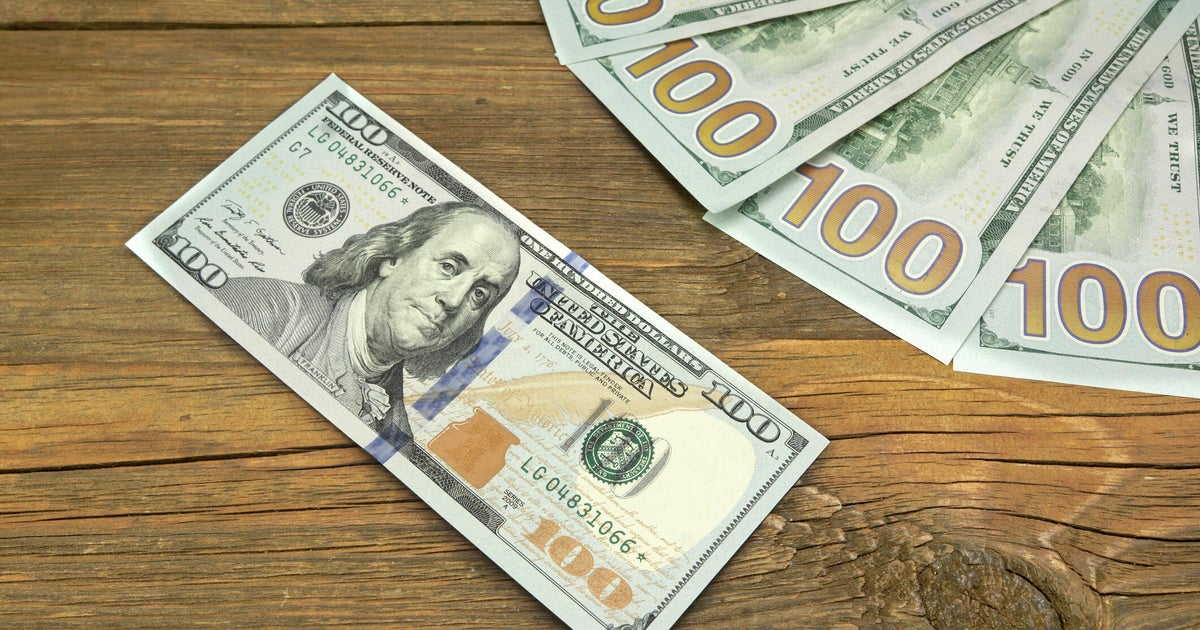Why a CD is better than these 4 popular alternatives
While no one likes inflation, the higher interest rates that today's persistent inflation issues have spurred have been a boon to many savers. In recent months, some accounts have even offered rates of 5% or more — a significant jump over the 1% rates seen just a few years ago.
But not all account types allow you to leverage these high rates the same way — or for the same amount of time. So, it's important to choose the right types of accounts for your money, especially right now.
And, if you're trying to maximize the interest you earn on your savings, here's why a certificate of deposit (CD) account in particular could be a better option than many other types of accounts right now.
Explore what today's top CD account options are online now.
Why a CD is better than these 4 popular alternatives
When it comes to your money, experts say a CD could make a lot more sense than these alternatives. Here's why:
A traditional savings account
Traditional savings accounts have much lower rates than most CDs. In fact, according to the Federal Deposit Insurance Corp., the average rate on a savings account is currently 0.46%. CDs, on the other hand, offer much higher rates on average. In fact, many financial institutions and online banks offer CDs with 5% APYs and higher right now.
"CDs give more interest return than the conventional saving account," says Christopher Naghibi, executive vice president at First Foundation Bank in Irvine, Calif. "It's also set to a fixed term, so it's a good option for someone whose money is clear and has no need to access the funds."
That last part is key, though, as many CDs come with early withdrawal penalties. So, if you think you'll need access to your money before your CD matures, a savings account may make more sense.
Compare your best CD account options now.
A high-yield savings account
High-yield savings accounts and CDs have more comparable interest rates than traditional savings accounts, but often, CDs will have slightly higher annual percentage yields (APYs) — at least on certain CD terms.
They also allow you to lock in that rate for a longer period of time. However, savings account rates are variable and change often based on the Federal Reserve's moves and market conditions.
"If you don't need to access your cash for the duration of the product, a CD may be a better choice for you because you have locked in your interest rate," says Ben McLaughlin, president of banking platform Raisin. "With a high-yield savings account, the interest rate may increase or decrease."
Just keep in mind that money in CDs isn't easily accessible.
"If you have an emergency fund that you may need to access at any point in time in a worst-case-event scenario, you may prefer a savings account," Naghibi says.
A money market account
Money market accounts tend to offer higher interest rates than traditional savings accounts, though they often have limits on the number of transactions you can make and the number of checks you can write. There also may be minimum balance requirements.
"CDs typically offer higher interest rates compared to money market accounts but with less liquidity," says Taylor Kovar, a certified financial planner at 11 Financial in Lufkin, Texas. "Money market accounts offer more flexibility in accessing funds but may yield lower returns."
Like savings accounts, rates on money market accounts change often because they're variable. This can be good or bad, depending on market conditions.
"CDs are generally best for savers who don't need immediate access to their cash and want to lock in a certain rate," McLaughlin says. "With a money market account, your cash is more accessible but your rate is variable. If you suspect rates will be going up, a money market account may be a good move, but when you expect rates could decrease, savers may want to lock in a great rate while they can."
The Federal Reserve is expected to reduce interest rates at some point this year, though it will depend on what happens with the inflationary environment. But if the Fed does cut rates, CDs may be a better option to maximize your interest earnings in 2024.
A high-yield checking account
Most checking accounts don't pay interest, and even those that do, like high-yield checking accounts, offer low APYs compared to many other interest-bearing options. Because of this, CDs are almost always the better choice compared to checking accounts if you're looking to grow your funds.
Again, though, CDs can make it hard to access your money if you need it before the account hits maturity, so they're best if you know you don't need the funds for a set amount of time.
A CD could also be a better choice if your finances are unpredictable or you're not sure how much you'll use the checking account.
"High-yield checking accounts may have requirements like minimum account balances, completing a minimum number of transactions each month, or receiving a certain amount of direct deposits," McLaughlin says. "Be sure to read the fine print to fully understand the terms and conditions of the account you are considering."
The bottom line
CDs are often the better choice for maximizing your interest, but they're not right for everyone. For one, they can make it hard to access your cash. If you find yourself needing emergency cash, you may pay a penalty for withdrawing money too early.
"Your money is inaccessible for the duration of the product's terms, unless you want to incur a penalty for withdrawing before it matures," McLaughlin says.
Some banks also offer no-penalty CDs, which you might want to consider if you're not sure when you'll need the money. Just be warned: "These generally offer lower interest rates," McLaughlin says.




